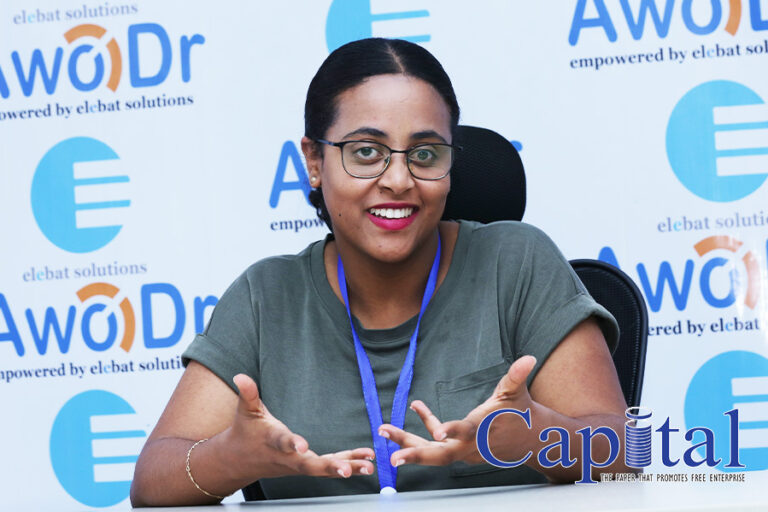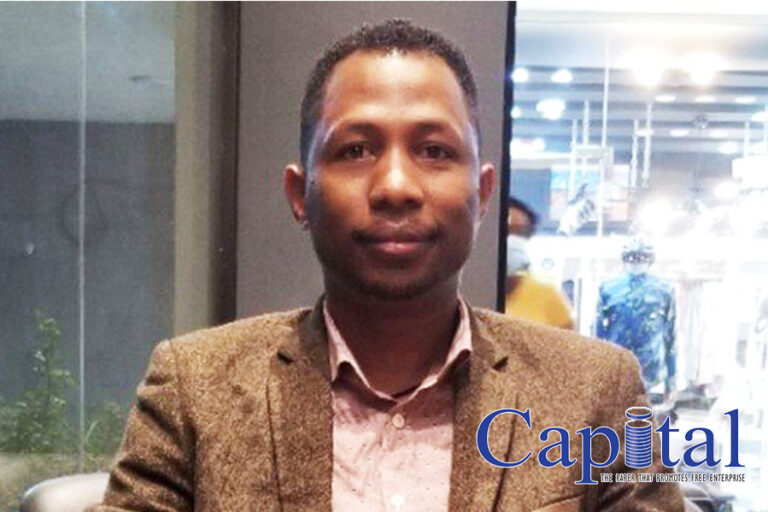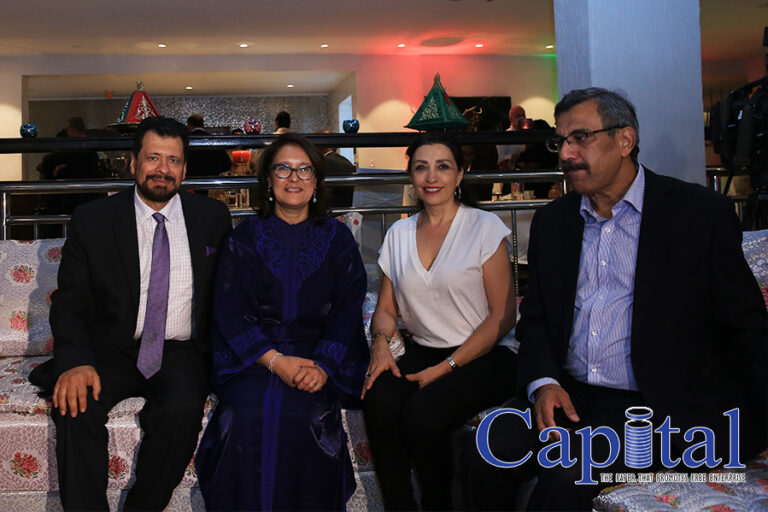Digital health, or digital healthcare, is a broad, multidisciplinary concept that includes concepts from an intersection between technology and healthcare, the application of information and communication technology to provide digital health interventions to prevent disease and improve quality of life.
Digital health innovations are designed to help save time, boost accuracy and efficiency, and combine technologies in ways that are new to healthcare.
Also, the cornerstone of Ethiopia’s Health System Transformation Plan is using innovative digital health interventions and informed policy decisions based on quality data to improve the health and wellbeing of Ethiopians.
Several private companies are on their way to starting these new platforms aimed to improve the health service delivery, through Elebat solution is one of them.
Elebat is an operator of digital finance & e-commerce which recently launched a new platform called Awo Doctor which engages in digital healthcare.
Emnet Terefe is a medical doctor with public health background. Currently, she is working as the director of E-health and health services. Capital caught up with Dr. Emnet for an insider view of the digital healthcare scene in Ethiopia. Excerpts;
Capital: Give us a brief overview of “Awo Doctor.”
Dr. Emnet: Awo doctor is a preventive lead digital platform that seeks to create accessible and affordable health services. It has been a month since we launched our service, it’s very much a new product. And we do that to empower youth and women who are fresh graduate medical doctors. Our main objectives can be summarized into four.
The first one is job creation. In Ethiopia, there is a paradox that we have relatively few doctors to which according to reports the ratio is 2.5 medical workers to 100,000, and yet, we have unemployed medical workers which we find very ridiculous and ironic, and we want to sort that, through this platform.
In addition to medical professionals, we also employ nonprofessionals since there is a big ecosystem in the whole value chain that accommodates women, youth, and dropouts who can also assist with the medical services.
So the first one is job creation, and the other is looking at financial inclusion. In our country, medical services are thought of as luxuries, not as necessities, owing to the mind-blowing price of hospitals. So we want to bridge the financial inclusion gap by giving preventative medical care.
The other is promoting prevention. Usually in countries like Ethiopia where resources are limited, preventing diseases at early onset has a very big impact.
Digitally enabled health services are also our goal, usually physician to patient interactions are just paper-based and we want to transform this. So, these are the four main objectives.
Our pillar is to transform medical checkups from luxury to necessity. It is a necessity because our rationale is to prevent non-communicable diseases.
So, currently, all CDC guidelines emphasize that in resource-limited settings, especially in developing countries like Ethiopia tackling disease before it outspreads is the most effective method owing to our limited resources and manpower.
In line with that even when we look at the statistics of the most recent reports, 41% of global deaths are because of non-communicable diseases. These diseases include; lung diseases, cardiac issues, liver issues, kidney issues, cancer, diabetes, hypertension, and so on.
When we see Ethiopia, according to WHO and the Federal Minister of Health’s joint data in 2019 when it comes to premature deaths there has been an 18% increase in risk when people don’t implement regular physical checkups. Coming to the financial impact, 31 billion birr is used annually to treat non-communicable diseases and indirectly more than 26 billion birr.
When you think about the loss in the workforce, and productivity due to non-communicable diseases, the figures are staggering. That is in addition to the health burden is why we implemented this platform, in order to have access to health care as well as the creation of a foundational basis for preventive health care.
We conducted our own study before developing the platform. In our research, we went to large communities and went door to door inquiring about their routine when it comes to healthcare. We identified that 64.3 percent of the community has never made medical checkups, and from these, 88 percent would actually want to have it but are unable due to accessibility and affordability.
We took this input to develop and prepare our business model, so as to provide a service that is accessible and affordable.
Capital: How are you going to provide these services?
Dr. Emnet: We provide the services door to door. To this end, we recruited fresh graduates from medical school with zero experience. Our initiative gives priority to women, to which we give them the necessary training backed with technology. Our trainees then go door to door and provide the needed screening.
So far we’ve deployed more than 500 medical doctors and the findings that we’re getting are staggering. People who think they’re healthy, have results that show different, and thus we have been able to identify certain diseases at the early stages.
We have an application called Awo Doctor. In this App, doctors living near you will be notified if you want medical services. The app is well-rounded in that, you can book the service and pay for it, all at a click.
Capital: What type of outcomes have unfolded from the research?
Dr. Emnet: The outcomes of our research have served as the basis of how we operate and the service that we provide.
Our research which is done by medical doctors who collect data door to door in almost all the sub-cities of Addis Ababa has been able to gather primary data which is well on its way to being published. actually in the way of being published.
The results have contributed greatly because initially, we did not know the specific focus. Now the main outcomes that arose stem from the issues of accessibility and affordability, thus outcomes that unfolded helped to guide us, since it is data-driven.
Capital: How accessible and affordable are your services?
Dr. Emnet: It is very much affordable and accessible for all. The triangulated income in this country shows that there is a huge gap between the upper half and the lower climbing class. We target 85% of the middle class because the upper half have the capability of taking care of themselves whilst the lower end of the spectrum have access to subsidized services.
As a business, we are targeting the middle or median group. We have done our market analysis and did a price range and we actually tested that so far people are very happy with our product.
Capital: Is the service you provide limited to Addis Ababa or accessible throughout the country?
Dr. Emnet: Currently, we are giving our services in Addis Ababa, but on the way forward we have a plan to incorporate it all over the country across all regions. We have also planned to build a chain of digitally enabled medical centers throughout the country.
Capital: How are you planning to cope with the undeveloped digitalization markets?
Dr. Emnet: So we have two options, that is, call centers and the application. So the young population can just download the app and the other population can dial 6061, to gain access. So when it comes down to the clients, they do need to be that knowledgeable of the digital background. It’s we who need to utilize the platform even a person with no knowledge can easily have the services if they have the need.
Capital: What ways have you put in place for job creation in this industry?
Dr. Emnet: We are striving to build an ecosystem. It’s not just medical services. We aim also to provide sustainable waste disposal which we are conscious about. So it’s not just the doctors providing medical services but also building an ecosystem with a lot of partners, government and non-government offices, and local and international organizations are a priority for us.
We are working to build this ecosystem so as to provide numerous jobs to potential employees we see fit, whether it’s medical professionals or youngsters who fit into the value chain. So we are actually creating jobs for a lot of people in the process and have so far deployed 500 medical workers. Within the next year our aim is to incorporate 10,000 medical and non-medical professionals.
The majority will be women and youth, in addition, we are planning to reach out to more than 1 million households throughout the country within one year.











